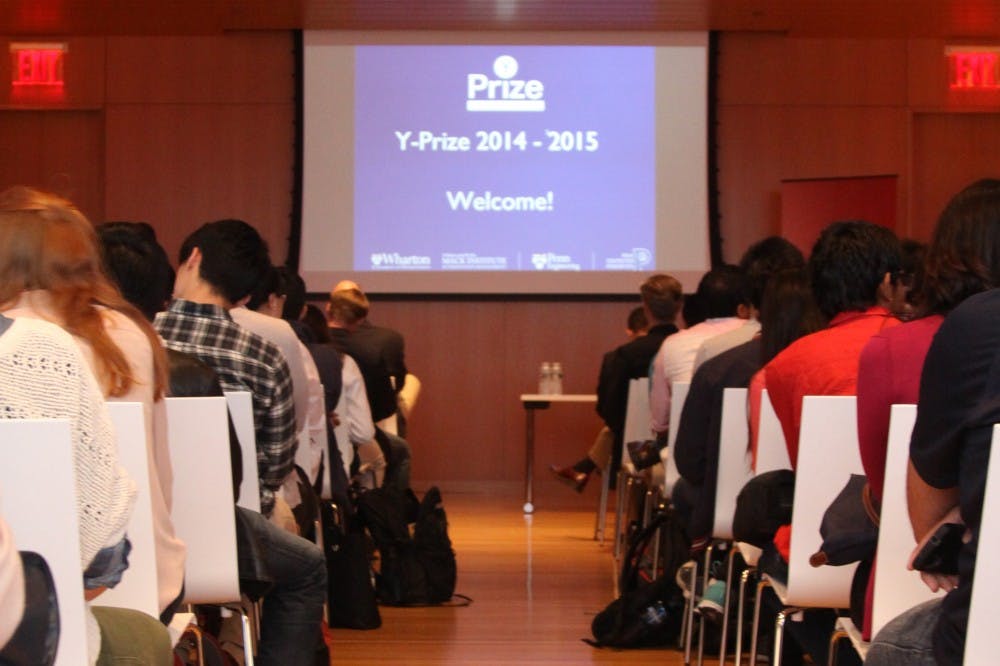
The fourth-annual Y-Prize — a competition in which teams propose innovative commercial applications for technology invented by Penn researchers — will hold its kick-off event on Monday.
The Y-Prize is a competition in which students examine the intersection of engineering and business, find applications for cutting-edge technologies and step into the shoes of budding entrepreneurs. Instead of coming up with innovative solutions for problems, participants need to identify problems for the technology to solve.
This year, coordinators restructured the design of the Y-Prize. Though the technologies were “more strictly just engineering” in the past, they’ve branched into the field of biomedical engineering this year “using technologies that were developed in a medical context, but really can have applications that go far beyond that field,” as Michelle Eckert, marketing and communications coordinator of the Mack Institute for Innovation Management, put it.
The competition has two phases: In the first phase, each team submits a video pitch and slide deck online illustrating an idea for an application of Y-Prize technology. Finalists, who are announced on Nov. 20, enter the second phase, in which they present their ideas to a panel of industry leaders who decide the winning team that will receive a prize of $10,000.
Many of the ideas generated during past years have been developed into innovative and successful companies. The winners of the 2012-13 Y-Prize were 2015 Engineering graduate Dick Zhang and 2016 Wharton Ph.D. student Andy Wuof Identified Technologies. Their idea was to use self-piloting aerial survey drones for land surveying and aerial mapping.
“Today, we’re a fully operational company,” Zhang said. He largely attributed his company’s success to the Y-Prize, saying that if it weren’t for this competition, he “most certainly would not have pursued this kind of entrepreneurial work.”
The winners of the 2014-15 competition were 2015 Wharton and Engineering graduates Ashwin Amurthur and Teddy Guenin of Graphene Field Effect Transistor-Track Technologies. They utilized graphene, a patented nanotechnology developed by Penn Engineering professor A. T. Charlie Johnson, to invent the graphene field effect transistor, which detects leaks during fracking.
Previous winners offered words of wisdom for future competitors. Zhang reflected that storytelling was one skill he realized was important during the competition .
“Effectively telling a story in the 10 minutes for your pitch and keeping compelling aspects in your story is probably the most important of skills that you could work on,” Zhang said. Guenin added that competitors should “think outside the box on whatever the technology could be used for because the ideas the judges are really going to like are going to be the nonobvious ones.”
The Daily Pennsylvanian is an independent, student-run newspaper. Please consider making a donation to support the coverage that shapes the University. Your generosity ensures a future of strong journalism at Penn.
DonatePlease note All comments are eligible for publication in The Daily Pennsylvanian.





